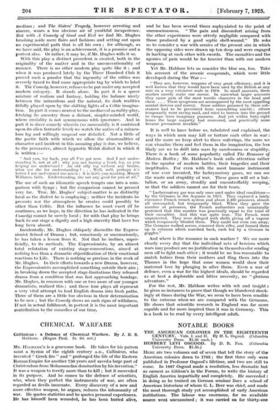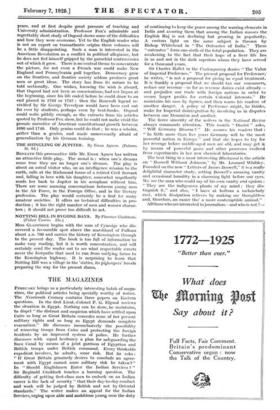NOTABLE BOOKS
HERE are two volumes out of seven that tell the story of the American colonies down to 1763; the first three only were published in Professor Osgood's lifetime, and two are still to come. In 1887 Osgood made a resolution, less dramatic but as earnest as Gibbon's in the Forum, to write the history of English America impartially and completely. He succeeded ; in doing so he trained on German seminar lines a school of -American historians of whom G. L. Beer was chief, and made the most thorough study yet accomplished of early American institutions. The labour . Was enormous, for no available source went unexamined it was carried on for thirty-one
years, and at first despite great pressure of teaching and University administration. Professor Fox's admirable and regrettably short study of Osgood shows some of the difficulties and how they were overcome. Yet to the English reader who is not an expert on transatlantic origins these volumes will be a little disappointing. Such a man is interested in the American Revolution as a conflict in political allegiance, but he does not feel himself gripped by the parochial controversies out of which it grew. There is no central theme to concentrate the picture, for not even a French war could make New England and Pennsylvania pull together. Democracy grew on the frontiers, and frontier society seldom produces great men or great ideas. The story has from its nature to be told sectionally. One wishes, knowing the wish is absurd, that Osgood had not been so conscientious, had not begun at the beginning, since his life ended before he could draw to an end placed in 1788 or 1787: then the Bancroft legend re- vivified by Sir George Trevelyan would have been east out for ever by students, perhaps even by text-books. Osgood could write pithily enough, as the extracts from his articles quoted by Professor Fox show, but he could not make vivid the prosaic narrative of American constitutional growth between 1690 and 1740. Only genius could do that ; he was a scholar, rather than a genius, and made unnecessarily afraid of generalization by his German training.











































 Previous page
Previous page